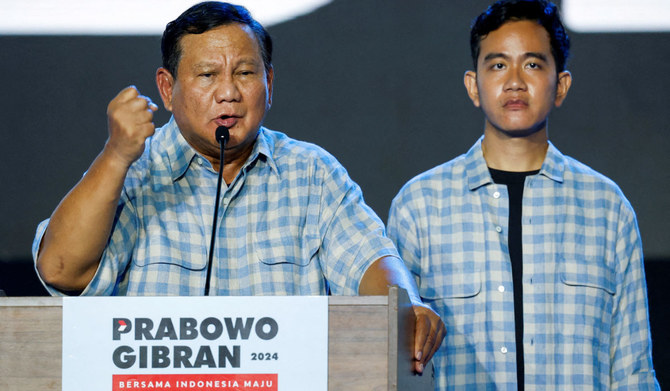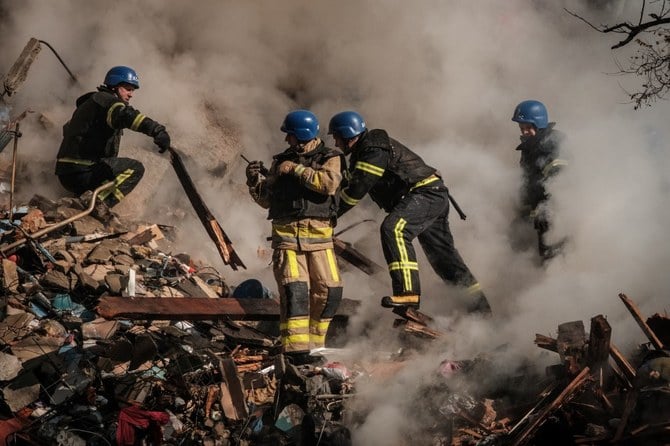
Iran’s Guardian Council disqualified all but seven of last month’s 592 presidential hopefuls — including the country’s longest-serving parliamentary speaker, a vice president and a former president — in the most extreme interference by a supreme leader in the electoral process.
After a disastrous pandemic experience, sky-high unemployment and climbing inflation amid US sanctions, this vote was an important moment for the country and its religious leaders. Therefore, the election of Iran’s judiciary chief Ebrahim Raisi, a self-declared ayatollah and Husseini sayyid, has left many wondering how such an establishment figure will be able to meet the challenges of Iran’s young population and make the concessions necessary to agree a new nuclear deal.
If former US President Donald Trump hoped to moderate Iran’s stance by withdrawing from the nuclear deal, the election of a hard-liner who is personally sanctioned by the US — because of his involvement in the mass execution of political prisoners in 1988 — was surely not the intention.
The election itself was far from straightforward. The lowest turnout since the 1979 revolution, coupled with the accidental or intentional voiding of some 3.7 million ballots, was illustrative of a remarkable lack of public confidence. Immediately, both Supreme Leader Ali Khamenei and state television sought to downplay this, blaming interference by Iran’s regional and Western rivals. The Islamic Republic has long cited high voter turnout as a sign of its legitimacy, so the en masse belligerence of Iranian voters will have raised eyebrows. Even though Raisi’s electoral win could have been regarded by many as a foregone conclusion, it is now a reality and Iran’s regional rivals and the international community will eventually have to engage with the man Khamenei himself is understood to have hand-picked.
The key soundbite of the veteran cleric’s first week following the election was that he would not meet US President Joe Biden. Entering office at a crucial period, amid the ongoing diplomatic efforts to revive the 2015 nuclear deal, this announcement will have undoubtedly concerned many in Washington who are hoping for rapprochement. Despite the progress achieved in the talks so far, US Secretary of State Antony Blinken has warned that a deal would be “very hard” should the talks drag on.
Raisi’s victory represents the return of conservative control over all three branches of government. His administration, which will take office on Aug. 3, is therefore expected to adopt a much more hard-line approach to both domestic and foreign affairs. This has clear ramifications for Iran’s approach to the future of the Joint Comprehensive Plan of Action (JCPOA) nuclear deal. Though the election of one from among the revolutionary vanguard might appear to jeopardize hopes of a deal, public anger if the talks collapsed would be high, particularly as inflation was about 40 percent last year. The regime will have to seek some sort of modus operandi with the West.
The president-elect has stated that Iran’s continued support of regional militia activity is ‘non-negotiable.’
Zaid M. Belbagi
Having stated that “our foreign policy does not begin and end with the JCPOA,” the reality is that the regime needs a way out and a hard-liner like Raisi can concede ground in the negotiations where a more moderate figure could not, for fear of upsetting conservatives. After an election that showed significant youth disaffection with Iran’s stunted post-revolutionary power structure, the regime must seek sanctions relief if it is to have any hope of revitalizing the economy.
Where Raisi may prove to be more committed to holding a firm position is in the context of the country’s relations with its Arab neighbors. The president-elect has stated that Iran’s continued support of regional militia activity is “non-negotiable.” The US will have a considerable task reassuring its allies in the Middle East that a renewed JCPOA won’t embolden Iran regionally.
Recent meetings between Iran and its neighbors in Baghdad and Doha have signaled a thawing of sorts, but Raisi’s election will focus minds as to whether Iran really will step back from its regional program of exporting its revolution. Sanam Vakil, deputy director of the Middle East and North Africa program at Chatham House, suggests that the election of a senior cleric could be advantageous. He said: “Unlike (outgoing President Hassan) Rouhani, they see Raisi, who is close to the supreme leader and the security and intelligence apparatus, as being able to deliver on regional compromises. This changed view will enable both sides to build on the current dialogue underway in Baghdad.”
The regime in Tehran is famously unpredictable, meaning that gauging the policies of an incoming president is a very imperfect science. More importantly, though the president is considered the country"s chief executive, the real decision-making power in practice lies with the supreme leader, who holds the ultimate authority in Iran. The president chairs the Supreme National Security Council, the key policymaking forum, but decisions on strategic issues are often made in a consensual manner and require Khamenei’s approval. Thus, Iran’s approach to the JCPOA will depend on Khamenei himself, rather than the philosophy of the new president.
As far as Iran’s regional rivals are concerned, how much the Biden administration is able to thread their concerns into a renewed JCPOA will be an important barometer of their importance to US security concerns going forward.
• Zaid M. Belbagi is a political commentator, and an adviser to private clients between London and the Gulf Cooperation Council (GCC). Twitter: @Moulay_Zaid
Disclaimer: Views expressed by writers in this section are their own and do not necessarily reflect Arab News" point-of-view












